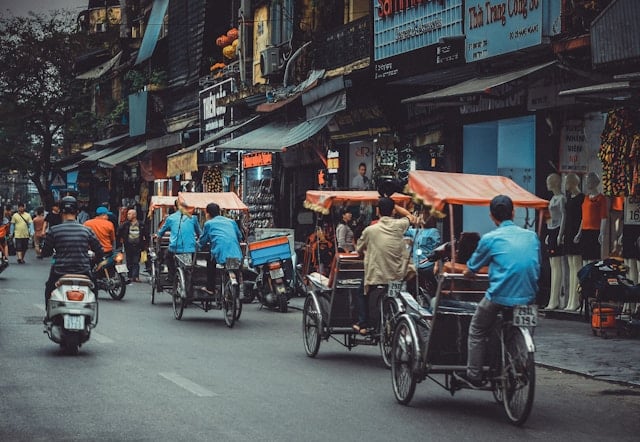Vietnam is one of Southeast Asia’s most captivating destinations, attracting Australians with its vibrant cities, stunning coastlines, and rich cultural heritage. Whether you’re planning a short holiday, an extended visit, or a work opportunity abroad, understanding what to expect will help you get the most out of your time in the country.
From local customs and climate to healthcare tips and visa requirements, this guide outlines essential information for Australians visiting or relocating to Vietnam. You’ll also find links to trusted resources for topics like travel vaccines, visa applications, and timing your trip for the best experience.
Entry and Visa Requirements for Australians
Australian passport holders need a visa to enter Vietnam for most types of travel. Visa options include single-entry tourist visas, e-visas, and business visas. In some cases, Australians may be eligible for visa exemptions for short stays, but it’s important to check requirements based on your travel dates and purpose of visit.
Most tourists apply for an e-visa online, which is valid for up to 90 days with either single or multiple entry options. If you plan to stay longer, explore business or work-related visa options that may require additional documentation and sponsorship. Read more: Vietnam Visa Requirements for Australian Travelers
Health and Safety Considerations
Vietnam is generally safe for travellers, but it’s important to prepare health-wise before you go. Australians are advised to consult with a healthcare provider at least a month before departure to ensure appropriate vaccinations and travel medications are up to date.
Recommended vaccinations may include Hepatitis A and B, Typhoid, Japanese Encephalitis (for long stays or rural travel), and routine immunisations such as tetanus and measles. Water quality and food safety can vary, so be cautious with street food, and use bottled or filtered water.
When to Travel: Weather and Seasonal Advice
Vietnam’s geography creates varied climate zones from north to south, making timing an important factor for travel planning. The best time to visit depends on your destinations and preferences.
-
Northern Vietnam (e.g., Hanoi, Ha Long Bay): Best between October and April for mild, dry weather
-
Central Vietnam (e.g., Da Nang, Hoi An): Ideal from February to August, with fewer storms and pleasant temperatures
-
Southern Vietnam (e.g., Ho Chi Minh City): Warm year-round, with a dry season from December to April
Avoid the rainy season if possible, especially during tropical storm periods in central regions.
Learn more in our article about the Best Time to Travel to Vietnam from Australia.
Understanding Vietnamese Culture and Daily Life
Vietnamese culture values respect, family, and community. Greetings often involve slight bows or nods, and it’s customary to use formal titles when addressing elders or professionals. Visitors should dress modestly when visiting temples or rural areas and remove shoes before entering someone’s home.
Public transport is widely available in major cities, though traffic can be chaotic. Ride-hailing apps like Grab are popular alternatives to taxis and buses. Street food culture is a highlight, offering authentic dishes like pho, banh mi, and fresh spring rolls at affordable prices.
Cash is commonly used, though digital payments are growing in popularity. Learning a few key Vietnamese phrases will help you connect with locals and show cultural respect. For more cultural insights, explore the Remitly Lifestyle & Culture Blog.
Essential Tips for Australians Visiting Vietnam
To prepare for a successful trip, keep the following in mind:
-
Apply for your visa early and confirm entry conditions
-
Schedule necessary vaccinations and pack essential medications
-
Carry both cash and a travel card for payments
-
Research climate by region to pack appropriately
-
Stay alert in crowded areas and avoid scams
-
Learn basic Vietnamese greetings and etiquette
-
Respect local customs, especially in religious or rural settings
FAQ: Vietnam for Australians
1. Do Australians need a visa to visit Vietnam?
Yes, most Australian travellers require a visa, such as an e-visa or tourist visa, depending on the length and purpose of the stay.
2. Is Vietnam safe for Australian tourists?
Yes, Vietnam is generally safe. However, it’s important to be aware of traffic conditions, petty theft in tourist areas, and food safety.
3. What vaccinations do I need before travelling to Vietnam?
Recommended vaccinations often include Hepatitis A and B, Typhoid, and routine immunisations. Additional vaccines may be needed based on your itinerary.
4. When is the best time to travel to Vietnam?
The ideal travel time depends on the region. For most areas, the dry season (roughly December to April) offers the best weather.
5. Can I use Australian dollars in Vietnam?
No, the official currency is the Vietnamese dong. Currency exchange is widely available, and you should carry dong for daily purchases.
Let me know if you’d like a printable checklist version of this guide or a side-by-side comparison with other Southeast Asian destinations.
